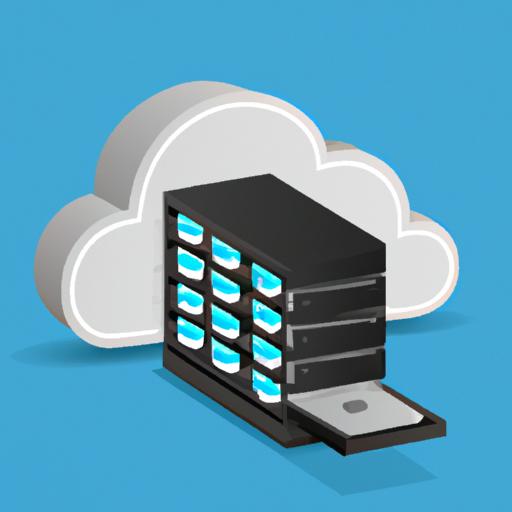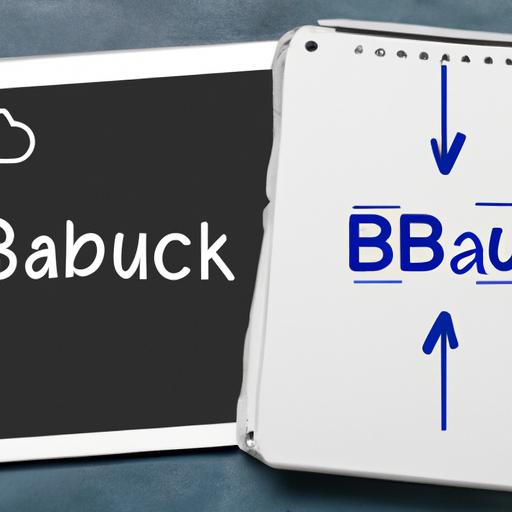Cloud Data Backup for Small Business: Safeguarding Your Future

In today’s digital age, data is the lifeblood of businesses, regardless of their size. As a small business owner, you understand the value of your data and the potential consequences of its loss. That’s where cloud data backup comes into play – a reliable and secure solution to protect your valuable information. In this article, I’ll delve into the significance of cloud data backup for small businesses and shed light on its definition and numerous benefits.
A. Importance of Cloud Data Backup for Small Businesses

Imagine a scenario where your business falls victim to a cyberattack or experiences a catastrophic event like a fire or a natural disaster. Without proper data backups, the ramifications could be devastating. Countless hours of hard work, crucial financial records, customer data, and vital business documents could vanish in an instant, leaving your business in a state of disarray. That’s where cloud data backup proves its worth. It acts as a safety net, ensuring that your data remains intact and recoverable even in the face of unforeseen circumstances.
B. Definition and Benefits of Cloud Data Backup

Cloud data backup involves storing your business’s data securely on remote servers, accessible via the internet. Unlike traditional backup methods that rely on physical storage devices, cloud data backup offers a host of advantages. Firstly, it provides off-site storage, meaning your data is stored in geographically diverse locations, mitigating the risk of data loss due to localized disasters. Secondly, cloud backup solutions offer automatic and continuous backups, eliminating the need for manual interventions that are prone to human error. Moreover, cloud data backup services often employ advanced encryption techniques, safeguarding your data from unauthorized access.
As a small business, scalability and cost-effectiveness are crucial considerations. Cloud data backup services offer flexible storage options, allowing you to scale up or down as your business needs evolve. Additionally, the pay-as-you-go pricing models ensure cost-efficiency, removing the burden of hefty upfront investments in hardware and infrastructure.
In conclusion, cloud data backup is a lifeline for small businesses, providing a reliable, secure, and cost-effective solution to protect your most valuable asset – your data. In the upcoming sections, we will dive deeper into the technical aspects of cloud data backup, explore the factors to consider when choosing a service, and highlight the top cloud data backup services tailored for small businesses. Stay tuned to learn how to safeguard your business’s future with cloud data backup.
Next Section: Understanding Cloud Data Backup
Understanding Cloud Data Backup

In this section, we will delve deeper into the world of cloud data backup, exploring its definition, functionality, and the advantages it brings to small businesses.
A. What is Cloud Data Backup?
Cloud data backup refers to the process of storing and securing your business’s data on remote servers, typically owned and managed by a third-party provider. Instead of relying on physical storage devices like external hard drives or tapes, cloud data backup leverages the power of the internet to store your data in off-site locations. This ensures that even if disaster strikes your physical premises, your data remains safe and accessible.
B. How Cloud Data Backup Works
Cloud data backup operates through a series of stages to ensure the seamless protection and retrieval of your data. Firstly, your data is encrypted, meaning it is converted into a secure code that can only be deciphered with the correct encryption key. This ensures that your data remains confidential and protected from unauthorized access.
Once encrypted, your data is then transmitted over the internet to the remote servers of the cloud data backup provider. These servers are equipped with redundant storage systems and robust security measures to safeguard your data from loss or theft. The backup process can be scheduled to occur automatically at specific intervals or in real-time, depending on your preferences and the capabilities of the service you choose.
C. Advantages of Cloud Data Backup for Small Businesses
Cloud data backup offers several advantages that make it an ideal choice for small businesses:
- Data Protection: By utilizing cloud data backup, your business data is stored in secure off-site locations, reducing the risk of data loss due to physical theft, damage, or disasters.
- Redundancy and Reliability: Cloud backup providers often employ redundant storage systems, ensuring multiple copies of your data are available. This redundancy enhances reliability and minimizes the possibility of data loss.
- Scalability and Flexibility: Cloud data backup solutions allow you to scale up or down your storage needs as your business grows or changes, ensuring you only pay for the storage you require.
- Automatic and Continuous Backups: Cloud backup services offer automated and continuous backups, eliminating the need for manual interventions and reducing the chances of human error.
- Ease of Recovery: In the event of data loss, cloud backup solutions provide quick and easy data recovery options, allowing you to restore your critical information promptly.
Understanding the concept and functionality of cloud data backup is crucial for small businesses. In the next section, we will explore the essential factors to consider when choosing a cloud data backup service for your business.
Next Section: Factors to Consider when Choosing a Cloud Data Backup Service
Factors to Consider when Choosing a Cloud Data Backup Service
When it comes to selecting a cloud data backup service for your small business, several critical factors should influence your decision. In this section, we will explore the key considerations that will help you make an informed choice.
A. Reliability and Security Features
The reliability of a cloud data backup service is paramount. You need to ensure that your data will be protected and accessible whenever you need it. Look for a service that offers a robust infrastructure with redundant storage and backup systems. Additionally, consider the security measures implemented by the provider. Encryption protocols, data privacy policies, and compliance with industry standards such as GDPR are essential aspects to evaluate.
B. Storage Capacity and Scalability
As your small business grows, so does your data storage needs. It’s important to choose a cloud backup service that offers sufficient storage capacity to accommodate your current and future requirements. Scalability is crucial, allowing you to seamlessly expand your storage as your business expands. Explore the options for increasing storage limits and check if there are any additional costs associated with scaling up.
C. Cost and Pricing Models
For small businesses, budget considerations are always at the forefront. Evaluate the pricing models offered by different cloud data backup services. Look for transparent pricing structures that align with your usage patterns. Pay-as-you-go models can be beneficial, enabling you to pay only for the storage you use. Keep an eye out for any hidden costs, such as data transfer fees or charges for additional services.
D. Ease of Use and Integration
A user-friendly interface and seamless integration with your existing systems and workflows can make a significant difference in your experience with a cloud data backup service. Consider the ease of setup, configuration, and management. Look for services that offer intuitive dashboards, simple file restoration processes, and compatibility with popular operating systems and applications. Integration with other tools, such as collaboration platforms or productivity suites, can enhance your workflow efficiency.
By carefully considering these factors, you can select a cloud data backup service that meets your small business’s unique needs. In the next section, we will explore the top cloud data backup services specifically designed for small businesses, providing you with options that tick all the boxes.
Next Section: Top Cloud Data Backup Services for Small Businesses
Top Cloud Data Backup Services for Small Businesses
When it comes to selecting the right cloud data backup service for your small business, it’s crucial to consider various factors such as reliability, security, storage capacity, and ease of use. To help you make an informed decision, let’s explore three top-notch cloud data backup services that cater specifically to the needs of small businesses.
A. Service 1: Features, Pros, and Cons
Service 1 offers a comprehensive range of features designed to meet the unique requirements of small businesses. With robust encryption protocols and secure data centers, it ensures the utmost protection for your sensitive information. Additionally, Service 1 provides seamless scalability, allowing you to effortlessly expand your storage capacity as your business grows. However, one potential drawback is its pricing structure, which may be slightly higher compared to other providers.
B. Service 2: Features, Pros, and Cons
Service 2 excels in providing user-friendly interfaces and seamless integration with popular business applications. Its intuitive backup scheduling and automatic file versioning make data management a breeze. Moreover, Service 2 offers competitive pricing plans tailored to small businesses, making it an affordable choice. On the downside, the storage capacity provided by Service 2 might be limited for businesses with extensive data requirements.
C. Service 3: Features, Pros, and Cons
Service 3 stands out with its advanced data deduplication technology, which minimizes storage space requirements without compromising data integrity. This feature can be particularly advantageous for small businesses with limited storage budgets. Additionally, Service 3’s robust data recovery options and 24/7 customer support ensure that your business experiences minimal downtime in the event of data loss. However, some users have reported occasional sluggishness during large-scale data restorations.
By thoroughly evaluating the features, pros, and cons of these top cloud data backup services, you can identify the one that best aligns with your small business’s unique needs. Remember, it’s crucial to consider factors like pricing, security, scalability, and customer support before making your final decision. In the next section, we will delve into the best practices for implementing cloud data backup to ensure optimal data protection and disaster recovery.
Next Section: Best Practices for Implementing Cloud Data Backup
Best Practices for Implementing Cloud Data Backup for Small Businesses
As a small business owner, implementing cloud data backup is just the first step towards securing your valuable data. To ensure a comprehensive and effective backup strategy, it’s crucial to follow best practices. Let’s explore some key practices that will help you make the most out of your cloud data backup solution.
A. Regular Backup Schedules
Regular backups are the foundation of a robust data protection strategy. Establishing a consistent backup schedule ensures that your data is continuously backed up, minimizing the risk of data loss. Consider the frequency at which your data changes and the criticality of the information to determine the optimal backup intervals. Whether it’s daily, weekly, or even in real-time, setting up automated backups guarantees that you’re always one step ahead of potential data disasters.
B. Data Encryption and Security Measures
The security of your backed-up data is of utmost importance, especially when leveraging cloud services. Encrypting your data before it leaves your premises adds an extra layer of protection against unauthorized access. Look for cloud backup providers that offer robust encryption standards, such as AES-256, to ensure data confidentiality. Additionally, consider implementing multi-factor authentication and access controls to safeguard your backup infrastructure from unauthorized users.
C. Testing and Verification of Backups
Backing up your data is essential, but it’s equally important to confirm its integrity and recoverability. Regularly test and verify your backups to ensure they are complete and functional. Conducting periodic data recovery drills allows you to identify any potential issues or errors in the backup process. Remember, it’s not just about creating backups; it’s about being confident that you can restore your data when the need arises.
D. Disaster Recovery Planning
While cloud data backup provides an excellent safety net, having a well-defined disaster recovery plan is equally vital. Outline the steps and procedures to follow in the event of a data loss or a disaster. Establish clear roles and responsibilities within your organization to ensure a swift and coordinated response. Consider factors such as recovery time objectives (RTOs) and recovery point objectives (RPOs) to determine the acceptable downtime and data loss thresholds for your business.
By adhering to these best practices, you can maximize the effectiveness of your cloud data backup solution and enhance the overall resilience of your small business. Remember, it’s not just about backing up your data; it’s about implementing a comprehensive backup strategy that encompasses encryption, testing, and disaster recovery planning.
Next Section: Conclusion
Conclusion: So above is the Cloud Data Backup for Small Business: Safeguarding Your Future article. Hopefully with this article you can help you in life, always follow and read our good articles on the website: WEEKLY NEWS




